- Home
- Hilary Mantel
Fludd
Fludd Read online
Table of Contents
Title Page
ONE
TWO
THREE
FOUR
FIVE
SIX
SEVEN
EIGHT
NINE
TEN
NOTE
ALSO BY HILARY MANTEL
Copyright Page
For Anne Ostrowska
ONE
On Wednesday the bishop came in person. He was a modern prelate, brisk and plump in his rimless glasses, and he liked nothing better than to tear around the diocese in his big black car.
He had taken the precaution—advisable in the circumstances—of announcing himself two hours before his arrival. The telephone bell, ringing in the hall of the parish priest’s house, had in itself a muted ecclesiastical tone. Miss Dempsey heard it as she was coming from the kitchen. She stood looking at the telephone for a moment, and then approached it gingerly, walking on the balls of her feet. She lifted the receiver as if it were hot. Her head on one side, holding the earpiece well away from her cheek, she listened to the message given by the bishop’s secretary. “Yes My Lord,” she murmured, though in retrospect she knew that the secretary did not merit this. “The bishop and his sycophants,” Father Angwin always said; Miss Dempsey supposed they were a kind of deacon. Holding the receiver in her fingertips, she replaced it with great care. She stood in the dim passageway, for a moment, thinking, and bowed her head momentarily, as if she had heard the Holy Name of Jesus. Then she went to the foot of the stairs and bellowed up them: “Father Angwin, Father Angwin, get yourself up and dressed, the bishop will be upon us before eleven o’clock.”
Miss Dempsey went back into the kitchen, and switched on the electric light. It was not a morning when the light made a great deal of difference; the summer, a thick grey blanket, had pinned itself to the windows. Miss Dempsey heard the incessant drip, drip, drip from the branches and leaves outside, and a more urgent metallic drip, pit-pat, pit-pat; it was the guttering. Her figure moved, the electric light behind it, over the dull green wall; immense hands floated towards the kettle; as in a thick sea, her limbs swam for the range. Upstairs, the priest beat his shoe along the floor and pretended to be coming.
Ten minutes later he had got himself up; she heard the creak of the floorboards above, the gurgle of water from the washbasin, his feet on the stairs. He sighed as he came down the hallway, his solitary morning sigh. Suddenly he was behind her, hovering: “Agnes, have you something for my stomach?”
“I daresay,” she said. He knew where the salts were kept; but she must get it for him, as if she were his mother. “Were there many at seven o’clock Mass?”
“It’s funny you should ask,” Father said, just as if she did not ask it every morning. “There were a few old Children of Mary, along with the usual derelicts. It wouldn’t be some special feast of theirs, would it? Walpurgisnacht?”
“I don’t know what you mean, Father. I’m a Children of Mary myself, as you perfectly well know, and I’ve not heard of anything.” She looked aggrieved. “Were they wearing their cloaks and all?”
“No, they were in mufti, just their usual horseblankets.”
Miss Dempsey brought the teapot to the table. “You ought not to make mock of the Sodalities, Father.”
“I wonder if something has got out about the bishop coming? Some intelligence of a subterranean variety? Am I to have bacon, Agnes?”
“Not with your stomach in its present state.”
Miss Dempsey poured from the pot, a thick brown gurgling stream, adding to the noise: the dripping trees, the wind in the chimneys.
“And another thing,” he said. “McEvoy was there.” Father Angwin hunched himself over the table. He warmed his hands around his cup. When he said the name of McEvoy, a shadow crossed his face, and hovered about his jaw, so that Miss Dempsey, who was given to imagination, thought for a moment she had seen what he would look like when he was eighty years old.
“Oh yes,” she said, “and did he want something?”
“No.”
“I wonder why you mention him then?”
“Dear Agnes, give me some peace. Go and let me compose myself for His Corpulence. What does he want, do you think? What’s he after this time?”
Agnes went out, a duster in her hand, her face full of complaints. Whatever he had meant about subterranean intelligence, surely he was not accusing her? Nobody but the bishop himself, forming the intention in his deep heart, had known he meant to visit—except perhaps the sycophants might have known. Therefore she, Miss Dempsey, could not know, therefore she could not hint, divulge, reveal, to the Children of Mary or anyone else in the parish. Had she known, she might have mentioned it. Might—if she had thought that anyone needed to know. She herself was the judge of what anyone needed to know. For Miss Dempsey occupied a special mediatory position, between church, convent, and everyone else. To acquire information was her positive duty, and then what she did with it was a matter for her judgement and experience. Miss Dempsey would have eavesdropped on the confessional, if she could; she had often wondered how she might manage it.
Left at the breakfast table, Father Angwin stared into his teacup and shifted it about. Miss Dempsey had not mastered the use of a strainer. Nothing in particular could be seen in the leaves, but for a moment Father Angwin thought that someone had come into the room behind him. He lifted his face, as he did in conversation, but there was no one there. “Come in, whoever you are,” he said. “Have some stewed tea.” Father Angwin was a foxy man, with his dead-leaf-colour eyes and hair; head tilted, he sniffed the wind, and shied away from what he detected. Somewhere else in the house, a door slammed.
Consider Agnes Dempsey: duster in hand, whisking it over the dustless bureau. In recent years her face had fallen softly, like a piece of light cotton folding into a box. Her neck too fell in floury, scalloped folds, to where her clothing cut off the view. Her eyes were round, child-like, bright blue, their air of surprise compounded by her invisible eyebrows and her hair, a faded gold streaked with grey, which sprang up from her hairline as if crackling with static. She had pleated skirts, and short bottle-shaped legs, and pastel twin-sets to cover the gentle twin hummocks of her bosom. Her mouth was small and pale and indiscernible, made to ingest the food she liked: Eccles cakes, vanilla slices, miniature chocolate Swiss rolls that came wrapped in red-and-silver foil. It was her habit to peel off the foil carefully, fold it as thin as a pencil, twist it into a ring, and pop it on her wedding finger. Then she would hold out both hands—fingers bloodless and slightly bent by incipient arthritis—and appraise them, a frown of concentration appearing as a single vertical line at the inner corner of her left eyebrow. Then she would rest her hand on her knee for a little; then remove the ring, intact, and throw it on to the fire. This was Miss Dempsey’s private habit, which no one had ever seen. Above her upper lip, on the right-hand side, she had a small flat wart, colourless as her mouth itself. It was hard for her not to touch it. She was afraid of cancer.
By the time the bishop came bustling in, Father Angwin had got over his hangover. He sat in the parlour, with his neat ingratiating smile. “Father Angwin, Father Angwin,” the bishop said, crossing the room, and taking him in a grip; hand squeezing upper arm, hand pumping hand, quite beside himself with joviality, and yet those episcopal bifocals glinting and swimming with suspicion, and the episcopal head turning, turning from side to side, like a mechanical toy that you shoot for at a fair.
“Tea,” Father Angwin said.
“No time for tea,” said the bishop. He took up a stance on the hearthrug. “I’ve come to talk to you on the subject of uniting all right-thinking people in the family of God,” he said. “Now then, now then, Father Angwin. I’m expecting trouble from you.”
; “Are you going to sit, or what?” Father Angwin asked him diffidently.
The bishop clasped his pink hands before him. He looked severely at the priest, and swayed a little on the spot. “The next decade, Father Angwin, is the decade of unity. The decade of gathering-in. The decade of Christ’s human family. The decade of the Christian community in communion with itself.” Agnes Dempsey came in with a tray. “Oh, since you’ve brought it,” the bishop said.
When Miss Dempsey had left the room—her knees had become stiff, owing to the wet weather, and she was obliged to take her time—Father Angwin said, “Do you mean the decade of burying the hatchet, by any small chance?”
“The decade of reconciliation,” the bishop said, “the decade of amity, the decade of coexistence, and the decade of the many-in-one.”
“You’re talking like a person right outside my experience,” Father Angwin said.
“The ecumenical spirit,” the bishop said. “Don’t you feel it in the breeze? Don’t you feel it wafted to you on the prayers of a million Christian souls?”
“I feel it breathing on my neck.”
“Am I ahead of my time, or what?” the bishop asked. “Or is it you, Father Angwin, closing your ears and deaf to the wind of change? And you might pour the tea, for I can’t abide tea stewed.”
When Father Angwin had poured the tea, the bishop picked up his cup, and jiggled it in his hand, and took a scalding gulp. Standing before the fireplace, he turned his toes out more widely, and placed his superfluous arm behind his back, and breathed in a noticeable way.
“Exasperated,” Father Angwin said, speaking in a low voice, but not to himself. “Exasperated with me. Tell me, is that tea hot enough? Good enough? Whisky in it?” He raised his voice. “I hardly understand you at all.”
“Well,” said the bishop, “have you heard of the vernacular Mass? Have you thought of it? I think of it. I think of it constantly. There are men in Rome who think of it.”
Father shook his head. “I couldn’t be part of that.”
“No choice, my dear man, no choice; in five years, mark my words, or a little more than five …”
Father Angwin looked up. “Do you mean,” he said, “that they could understand what we were saying?”
“Exactly the point.”
“Pernicious,” Father muttered audibly. “Arrant nonsense.” Then, louder, “I can well understand if you think that Latin’s too good for them. But the problem I have here is their little grasp of the English language, do you see?”
“I take account of that,” the bishop said. “The people of Fetherhoughton are not on a high level. I would not claim that they were.”
“Then what am I to do?”
“Everything conspires to improve them, Father. I will not refer to council housing, as I know it is a sore point in this district …”
“Requiescant in pace,” Father murmured.
“ … but have they not free spectacles? Free teeth? In the times we live in, Father Angwin, everything that can be done to improve their material welfare shall be done, and it is for you to think of improving them in the spiritual line. Now, I have some hints and tips for you, which you will kindly accept from me.”
“I don’t see why I should,” Father Angwin said, quite loudly enough to be heard, “when you are such an old fool. I don’t see why I can’t be a Pope in my own domain.” He looked up. “Consider me at your disposal.”
The bishop stared; it was a pebbly stare. He pursed his lips and said nothing till he had drunk a second cup. Then, “I want to look at the church.”
At this early point, the topography of the village of Fetherhoughton may repay consideration. So may the manners, customs, and dress of its inhabitants.
The village lay in moorland, which ringed it on three sides. The surrounding hills, from the village streets, looked like the hunched and bristling back of a sleeping dog. Let sleeping dogs lie, was the attitude of the people; for they hated nature. They turned their faces in the fourth direction, to the road and the railway that led them to the black heart of the industrial north: to Manchester, to Wigan, to Liverpool. They were not townspeople; they had none of their curiosity. They were not country people; they could tell a cow from a sheep, but it was not their business. Cotton was their business, and had been for nearly a century. There were three mills, but there were no clogs and shawls; there was nothing picturesque.
In summer the moorland looked black. Tiny distant figures swarmed over the hummocks and hills; they were Water Board men, Forestry Commission. In the folds of the hills there were pewter-coloured reservoirs, hidden from sight. The first event of autumn was the snowfall that blocked the pass that led through the moors to Yorkshire; this was generally accounted a good thing. All winter the snow lay on the hills. By April it had flaked off into scaly patches. Only in the warmest May would it seem to vanish entirely.
The people of Fetherhoughton kept their eyes averted from the moors with a singular effort of will. They did not talk about them. Someone—it was the mark of the outsider—might find a wild dignity and grandeur in the landscape. The Fetherhoughtonians did not look at the landscape at all. They were not Emily Brontë, nor were they paid to be, and the very suggestion that the Brontë-like matter was to hand was enough to make them close their minds and occupy their eyes with their shoelaces. The moors were the vast cemetery of their imaginations. Later, there were notorious murders in the vicinity, and real bodies were buried there.
The main street of Fetherhoughton was known to the inhabitants as Upstreet: “I am going Upstreet,” they would say, “to the Co-op drapers.” It was not unprosperous. Behind window displays of tinned salmon, grocers stood ready at their bacon slicers. Besides the Co-op draper, the Co-op general store, the Co-op butcher, the Co-op shoe shop, and the Co-op baker, there was Madame Hilda, Modes; and there was a hairdresser, who took the young women into private cubicles, segregated them with plastic curtains, and gave them Permanent Waves. There was no bookshop, nor anything of that sort. But there was a public library, and a war memorial.
Off Upstreet ran other winding streets with gradients of one in four, lined by terraced houses built in the local stone; they had been put up by the mill-owners towards the end of the last century, and rented out to the hands. Their front doors opened straight onto the pavement. There were two rooms downstairs, of which the sitting room was referred to as the House; so that in the unlikely event of anyone from Fetherhoughton explaining their conduct in any way, they might say, “I cleaned miyoopstairs this morning, this afternoon I am bound fert clean the House.”
The speech of the Fetherhoughtonians is not easy to reproduce. The endeavour is false and futile. One misses the solemnity, the archaic formality of the Fetherhoughtonian dialect. It was a mode of speech, Father Angwin believed, that had come adrift from the language around it. Some current had caught them unawares, and washed the Fetherhoughtonians far from the navigable reaches of plain English; and there they drifted and bobbed on waters of their own, up the creek without a paddle.
But this is a digression, and in those houses there was no scope to digress. In the House there would be a coal fire, no heating in any other room, though there might be a single-bar electric fire kept, to be used in some ill-defined emergency. In the kitchen, a deep sink and a cold-water tap, and a very steep staircase, rising to the first floor. Two bedrooms, a garret: outside, a cobbled yard shared between some ten houses. A row of coalsheds, and a row of lavatories: to each house its own coalshed, but lavatories one between two. These were the usual domestic arrangements in Fetherhoughton and the surrounding districts.
Consider the women of Fetherhoughton, as a stranger might see them; a stranger might have the opportunity, because while the men were shut away in the mills the women liked to stand on their doorsteps. This standing was what they did. Recreational pursuits were for men: football, billiards, keeping hens. Treats were doled out to men, as a reward for good behaviour: cigarettes, beer at the Arundel Arms. Religion, and
the public library, were for children. Women only talked. They analysed motive, discussed the serious business, carried life forward. Between the schoolroom and their present state came the weaving sheds; deafened by the noise of the machines, they spoke too loudly now, their voices scattering through the gritty streets like the cries of displaced gulls.
Treeless streets, where the wind blows.
Consider their outdoor (not doorstep) dress. They wore plastic raincoats of a thick, viscous green, impermeable, like alien skins. Should it chance not to rain, the women rolled these raincoats up and left them about the house, where they appeared like reptiles from the Amazon, momentarily coiled in slumber.
For shoes, the women wore bedroom slippers in the form of bootees, with a big zip up the middle. When they went outdoors they put on a stouter version of the same shoe in a tough dark brown suede. Their legs rose like tubes, only an inch or so exposed beneath the hems of their big winter coats.
The younger women had different bedroom slippers, which relatives gave each other every Christmas. They were dish-shaped, each with a thick ruff of pink or blue nylon fur. At first the soles of these slippers were as hard and shiny as glass; it took a week of wear before they bent and gave under the foot, and during that week their wearer would often look down on them with pride, with a guilty sense of luxury, as the nylon fur tickled her ankles. But gradually the fur lost its bounce and spring, and crumbs fell into it; by February its fibres were matted together with chip fat.
From the doorsteps the women stared at passers-by, and laughed. They knew a joke, when it was pointed out to them, but for the most part their entertainment lay in the discernment of physical peculiarities in those around them. They lived in hope of seeing a passer-by with a hunchback, knock knees, or a hare lip. They did not think that it was cruel to mock the afflicted, they thought it was perfectly natural; they were sentimental but pitiless, very scathing, and unforgiving about any aberration, deviation, eccentricity, or piece of originality. There was a spirit abroad in the village that discriminated so thoroughly against pretension that it also discriminated against ambition, even against literacy.

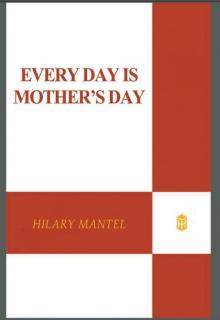 Every Day Is Mother's Day
Every Day Is Mother's Day An Experiment in Love
An Experiment in Love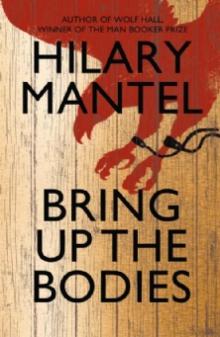 Wolf Hall
Wolf Hall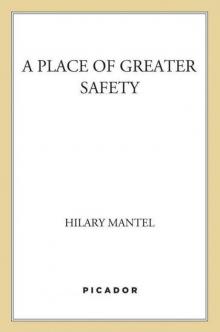 A Place of Greater Safety
A Place of Greater Safety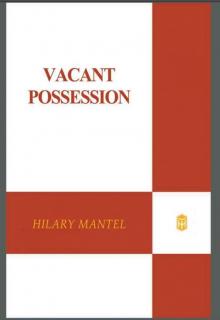 Vacant Possession
Vacant Possession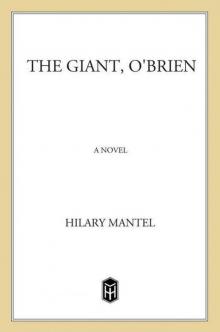 The Giant, O'Brien
The Giant, O'Brien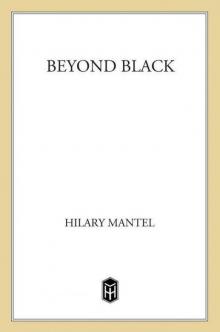 Beyond Black
Beyond Black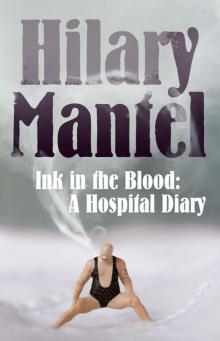 Ink in the Blood: A Hospital Diary
Ink in the Blood: A Hospital Diary The School of English
The School of English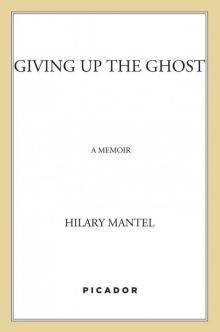 Giving Up the Ghost
Giving Up the Ghost The Mirror and the Light: 2020’s highly anticipated conclusion to the best selling, award winning Wolf Hall series (The Wolf Hall Trilogy, Book 3)
The Mirror and the Light: 2020’s highly anticipated conclusion to the best selling, award winning Wolf Hall series (The Wolf Hall Trilogy, Book 3)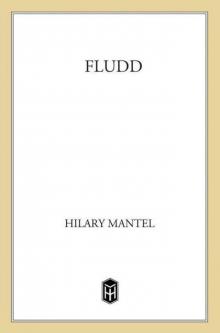 Fludd
Fludd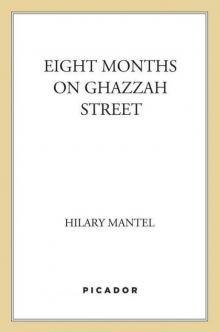 Eight Months on Ghazzah Street
Eight Months on Ghazzah Street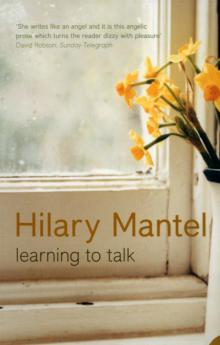 Learning to Talk
Learning to Talk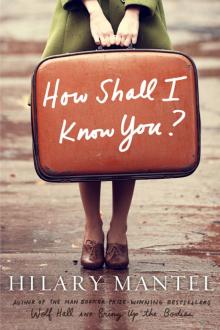 How Shall I Know You?: A Short Story
How Shall I Know You?: A Short Story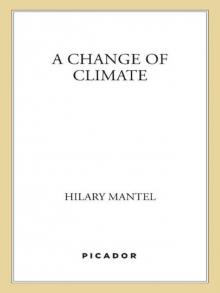 A Change of Climate
A Change of Climate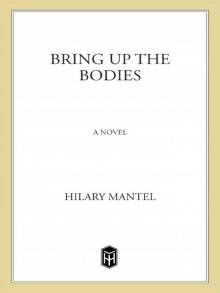 Bring Up the Bodies
Bring Up the Bodies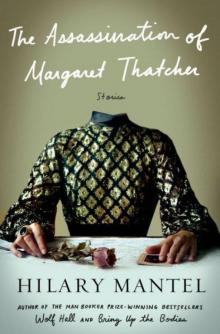 The Assassination of Margaret Thatcher: Stories
The Assassination of Margaret Thatcher: Stories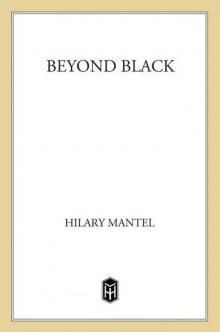 Beyond Black: A Novel
Beyond Black: A Novel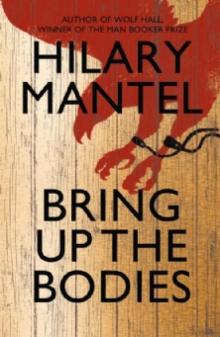 Wolf Hall: Bring Up the Bodies
Wolf Hall: Bring Up the Bodies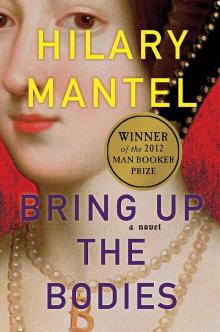 Bring Up the Bodies tct-2
Bring Up the Bodies tct-2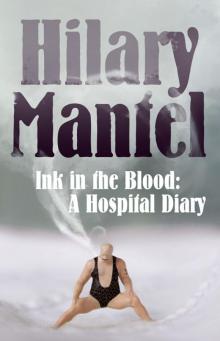 Ink in the Blood
Ink in the Blood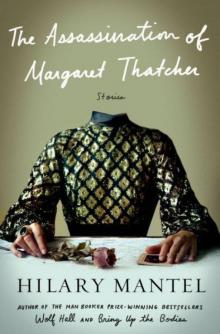 The Assassination of Margaret Thatcher
The Assassination of Margaret Thatcher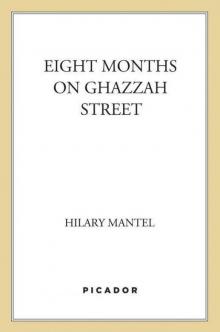 Eight Months on Ghazzah Street: A Novel
Eight Months on Ghazzah Street: A Novel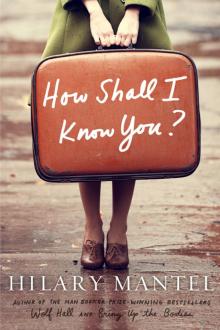 How Shall I Know You?
How Shall I Know You?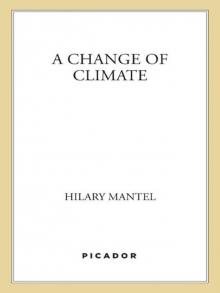 A Change of Climate: A Novel
A Change of Climate: A Novel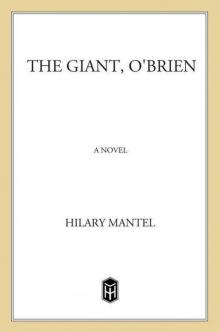 The Giant, O'Brien: A Novel
The Giant, O'Brien: A Novel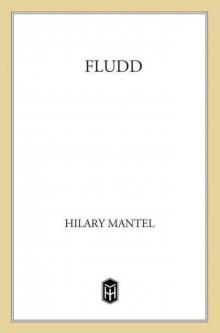 Fludd: A Novel
Fludd: A Novel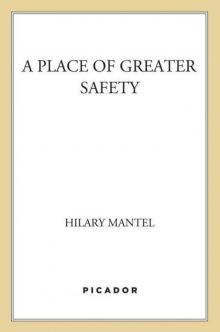 A Place of Greater Safety: A Novel
A Place of Greater Safety: A Novel An Experiment in Love: A Novel
An Experiment in Love: A Novel